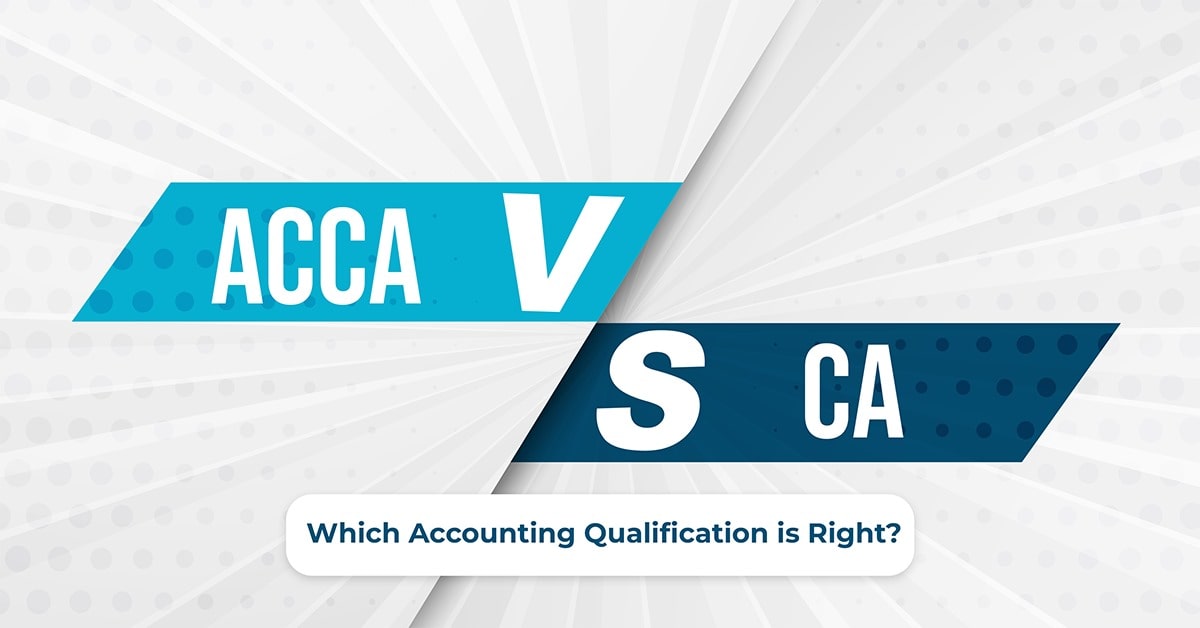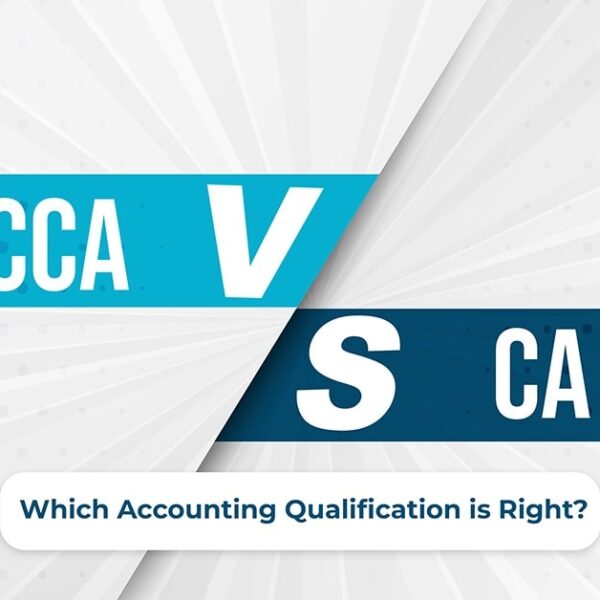In India’s competitive finance sector, professionals often face a critical career decision: pursuing the globally recognised Association of Chartered Certified Accountants (ACCA) qualification or the locally established Chartered Accountancy (CA) programme. Both paths lead to respected professional designations but differ significantly in structure, focus, and career outcomes. This comparative analysis aims to help Indian finance aspirants make an informed choice between ACCA and CA.
Curriculum Structure and Focus
CA Curriculum
The Indian CA programme, governed by the Institute of Chartered Accountants of India (ICAI), follows a three-tier structure:
- Foundation Course (entry-level)
- Intermediate Course (two groups)
- Final Course (two groups)
The curriculum emphasises Indian taxation, corporate law, accounting standards, and auditing practices specific to the Indian regulatory environment. This makes CA particularly valuable for roles requiring deep knowledge of Indian financial regulations.
ACCA Curriculum
The ACCA qualification comprises:
- Applied Knowledge (3 papers)
- Applied Skills (6 papers)
- Strategic Professional (4 papers, including 2 mandatory and 2 optional papers)
- Ethics and Professional Skills module
ACCA’s syllabus offers a more international perspective, focusing on global accounting standards (IFRS), international business practices, and strategic management. This global orientation makes ACCA particularly relevant for roles in multinational corporations or international financial environments.
Examination Structure and Flexibility
CA Examination System
- Fixed examination schedules (typically May and November)
- Paper-based exams
- All examinations conducted in India
- Group clearing requirement (must pass all subjects in a group within one attempt)
ACCA Examination System
- Flexible examination schedule with four sessions annually for most papers
- Computer-based testing for most papers
- Global examination centres available across India
- Individual paper clearing (can pass papers one at a time)
ACCA’s flexibility in examination scheduling and individual paper passing makes it particularly suitable for working professionals or those who prefer to pace their qualification journey.
Duration and Time Commitment
CA Timeline
- Minimum completion time: Approximately 4.5-5 years
- Mandatory articleship: 3 years of practical training under a practicing CA
- Full-time commitment generally required during articleship
ACCA Timeline
- Minimum completion time: Approximately 2-4 years (depending on exemptions)
- Practical experience requirement: 36 months in relevant roles (can be completed before, during, or after exams)
- Possibility to work in various organisations while studying
The ability to complete ACCA while maintaining full-time employment in diverse organisations offers flexibility that appeals to many professionals who cannot commit to the structured articleship of the CA programme.
Recognition and Career Opportunities
CA Recognition
- Gold standard for accounting professionals in India
- Strong recognition in Indian companies, particularly in audit, taxation, and compliance
- Statutory recognition for signing audit reports of Indian companies
- Established pathway to practice as an independent professional
ACCA Recognition
- Global recognition across 180+ countries
- Preferred for roles in multinational corporations and shared service centres
- Strong value in financial analysis, management accounting, and international reporting
- Growing acceptance in the Indian market, especially in metropolitan cities and global organisations
While CA holds stronger statutory recognition within India, ACCA offers broader international mobility and is increasingly valued by global organisations operating in India.
Salary Prospects and Return on Investment
CA Compensation Trends
- Entry-level: ₹5-8 lakhs per annum
- Mid-career (5-8 years): ₹12-25 lakhs per annum
- Senior positions: ₹30+ lakhs per annum
- Strong earning potential in practice after establishing clientele
ACCA Compensation Trends
- Entry-level: ₹5-7 lakhs per annum
- Mid-career (5-8 years): ₹12-20 lakhs per annum
- Senior positions: ₹25+ lakhs per annum
- Premium in multinational and international settings
While compensation ranges overlap considerably, CA might have a slight edge in traditional Indian companies and practice, whereas ACCA can command premium salaries in international organisations and overseas markets.
Investment Required
CA Programme Costs
- Registration and exam fees: Approximately ₹80,000-1,00,000
- Coaching fees (if opted): ₹1,50,000-2,50,000
- Lower overall cost but significant opportunity cost during articleship period
ACCA Course Fees in India
- Registration, subscription, and exam fees: Approximately ₹3,50,000-4,50,000
- Coaching fees (if opted): ₹1,00,000-2,50,000
- Higher direct costs but potentially lower opportunity cost due to ability to work simultaneously
While ACCA requires higher upfront investment, the ability to earn while learning can offset this difference for many candidates.
Pass Rates and Difficulty Level
CA Success Metrics
- Overall pass rates: Generally 10-20% for Final level
- Requires consistent preparation and deep conceptual understanding
- Known for its rigorous difficulty level, particularly in Final papers
ACCA Passing Percentage in India
- Overall pass rates: Typically 30-45% depending on the paper
- Strategic Professional level considered most challenging
- Progressive difficulty level as candidates advance through papers
While both qualifications are challenging, CA’s lower pass rates and group clearing requirement typically make it statistically more difficult to complete.
Who Should Choose CA?
The CA path may be more suitable for:
- Professionals planning long-term careers primarily within India
- Those interested in independent practice, particularly in audit and taxation
- Candidates comfortable with a structured, intensive training period
- Individuals seeking statutory recognition for audit sign-off in India
- Those focusing on Indian corporate law and taxation specialisation
Who Should Choose ACCA?
The ACCA route might better suit:
- Professionals aspiring for international career mobility
- Those working in or targeting multinational corporations
- Individuals seeking flexibility to work while studying
- Candidates interested in broader business strategy and financial management
- Those preferring computer-based testing and flexible exam scheduling
Combining Both Qualifications
An emerging trend among ambitious finance professionals is pursuing both qualifications sequentially:
- Starting with ACCA for international perspective and flexible study
- Following with relevant CA papers (taking advantage of paper exemptions through mutual recognition agreements)
- Creating a powerful combination of local expertise and global perspective
This dual-qualification approach, while demanding, can position professionals uniquely in both Indian and international job markets.
Conclusion
The choice between ACCA and CA isn’t simply about which is “better” but rather which aligns more closely with your personal career aspirations, learning preferences, and professional goals. Both qualifications open doors to rewarding careers in finance, albeit through different pathways and with slightly different emphases.
For those targeting international careers, prioritising flexibility, or working in multinational environments, ACCA offers compelling advantages. Conversely, those focusing on Indian statutory roles, independent practice, or deep specialisation in Indian financial regulations may find CA more directly applicable.
As India’s economy becomes increasingly integrated with global markets, both qualifications continue to gain recognition and value, offering Indian finance professionals complementary paths to career success.








